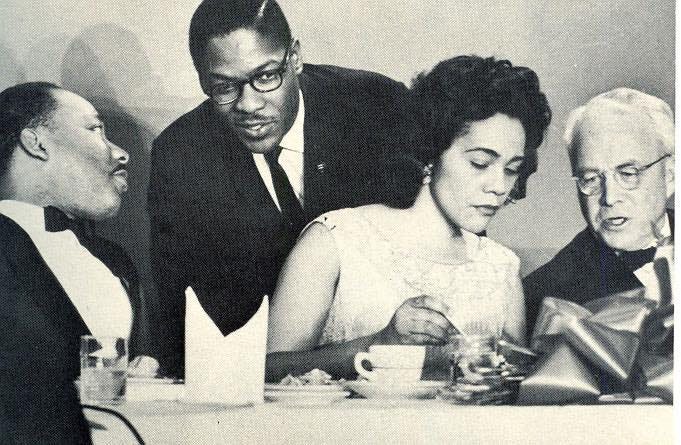Too Busy To Hate
My father, his father, and his uncle before him sold office supplies. Among polite people, this profession is known as “stationers” because, among other things, they sell stationery.
They did many things nobody would be interested in, but they also sold the typing paper and ribbons Eudora Welty used to write her stories, as their store was two blocks east of her father’s office in the Lamar Life Building.
The trade association for stationers was the National Office Products Association, NOPA. Through NOPA, they (and I) met many fascinating people, including the man who invented the BIC disposable pen.
One man who befriended my uncle, grandfather, and father because they were all Southern stationers was Ivan Allen.
Besides being the largest stationer in the state of Georgia, Allen also served three terms as mayor of Atlanta, the largest city in the New South.
New South was a name people began to use before they meant it. Most Southern cities were more devoted to Jim Crow than they were to Jesus Christ in those days. Ivan Allen was different.
Considered a moderate at best by today’s standards, some considered Allen dangerously progressive, and possibly a communist. He was decidedly not a communist.
Allen had the radical idea that there were simply too many Africans living in Atlanta for the city to ever prosper if they didn’t too. Allen liked the motto that Atlanta was “The city too busy to hate.”
Martin Luther King Jr began his ministry in Atlanta. It soon encompassed the entire world. As mayor, white leaders accused Allen of allowing King and his followers to “fester “ in Atlanta, causing problems in their cities like Birmingham and Memphis.
Allen was undaunted. When King won the Nobel Peace Prize in 1964, Allen arranged a biracial dinner to celebrate it. (See photo)
As King’s career and fame grew, Allen developed a friendship with his wife, Coretta, who often stayed in Atlanta. Allen made sure King’s wife had police protection when he was gone. He was with her when the news came from Memphis that King was shot in 1968. He worked tirelessly with black leaders in the days that followed to try and prevent violence and rioting from breaking out in Atlanta.
Allen seemed a little old man when I met him, but his legend loomed large. He’d been a friend to my father and uncle.
His example led my father to hire a black receptionist for the Mississippi School Supply Company. That sounds like such a ridiculously small effort, but having the first face you saw entering the building, a black one, made an impression. He would receive a fair amount of hate and pressure to change his mind. Working for us, she continued her studies and ended up working at Jackson State.
“Too busy to hate” sounds like such an inadequate way to describe the difference Atlanta made, surrounded by cities who were decidedly not too busy to hate.
When I was a child, our heroes were actually heroic, serving even the least of these before serving themselves. I was lucky enough to meet some of them.


